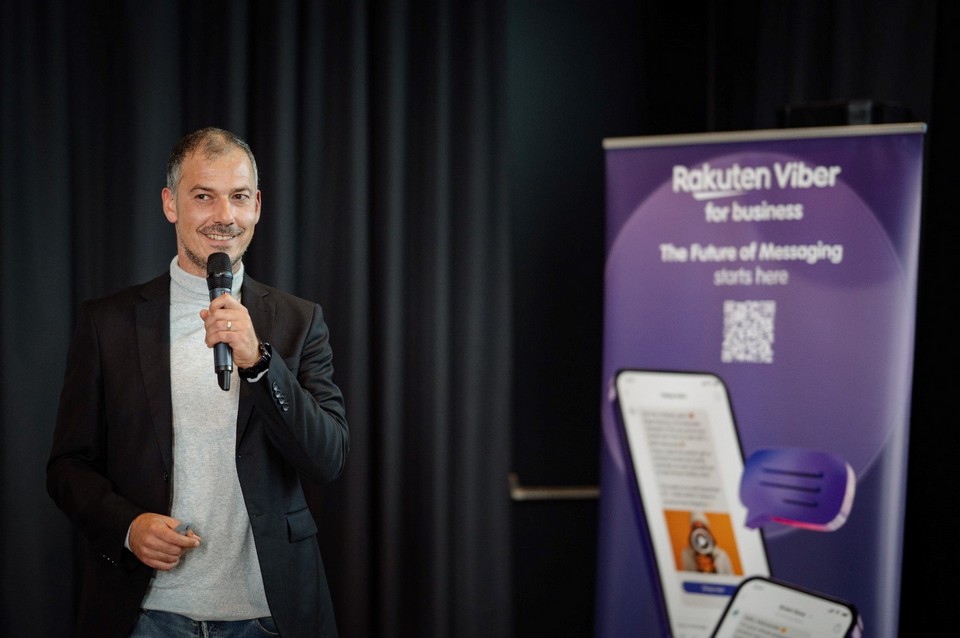These sales leaders put the customer and their needs at the centre of their business and implement technology to simplify and expedite processes and make business more efficient

Whether B2B or B2C, it seems like the competition in sales is bigger and stronger than in any other industry. Companies use all available sales and marketing opportunities to attract the attention of consumers and motivate them to become their loyal customers.
However, only using new sales channels such as social networks, mobile applications and e-shop can hardly help companies stand out in the market for the same reason that their competition also uses those same channels.
For sales-oriented companies, regardless of whether they are in retail or wholesale, to beat the competition, according to Nemanja Mališić, CEO of the IT company Intelisale, they must put the customer, not their product, at the centre of their business and based on everything they know about the customer, make personalized offers to them, which means that, as Mališić says, it is necessary to implement a sales and communication omnichannel platform in their business.
“It has become a practice for, say, companies that have a store, an e-shop and a mobile application to define themselves as an omnichannel. But that is not true because omnichannel sales does not mean using different sales channels, but rather connecting them. Only when the company integrates all sales channels, as well as communication, it can provide customers with a unique and personalized shopping experience at any time, in any place and from any device. Why? Because, thanks to the omnichannel platform, all customer contact points and unified information about customers are integrated into “a single source of truth”, regardless of whether they bought in a store or on one of the digital channels,“ explains Mališić and notes that research by Harvard Business Review shows that over 70% of consumers, as well as B2B decision makers for communication with suppliers, use about 10 channels for shopping.
„In short, today’s customer is not one-dimensional, so sales cannot be that way either. Today’s customer expects that something they saw on social networks, can be bought immediately in just a few clicks, quickly and easily. Sometimes the customer expects it to be delivered the same day. If they buy something online and the product does not meet their expectations, they expect that they can return it to the nearest store and not have to send it by mail. If the customer, for instance, bought an air conditioner in a store, they expect to receive an e-mail after a day or two with detailed and simple instructions on how to maintain it. Simply put, the customer is looking for the possibility of action regardless of the initial point of contact with the brand and that is exactly why technology is so important. Only technology can provide and support such customer expectations,“ says our interlocutor.
Companies that have a store, an e-shop and a mobile application define themselves as an omnichannel. But that is not true because omnichannel sales does not mean using different sales channels, but rather connecting them

Ivica Prlić, Head of BFSI, Retail and eCommerce for Central and Eastern Europe at the Infobip Company, a global cloud communication platform, believes that the implementation of a sales and communication omnichannel platform in business makes the difference between sales champions and average players.
„It is crucial for companies to implement timely technological solutions that will help them to simplify processes, expedite them and ultimately make the job for themselves and their co-workers easier and make their business more efficient. Automation and optimization are key. Omnichannel is not just about sales. Communication with customers continues even after the purchase. Thanks to technology, companies can meet their customers where they are and then follow them wherever they go. It is the customer who determines the relevance of the channel, not the company,“ explains Prlić.
According to him, data collection and analysis is a crucial feature of an omnichannel.
„Data helps marketers to understand consumer behaviour better than ever before, and therefore to create messages that are tailored to their individual needs. Research shows that 80% of shoppers will buy from a company that offers personalized experiences,“ Prlić underlines.
Intelisale, a Serbian IT company that has developed an omnichannel platform for business and sales development, and Infobip, a leader in the CPaaS (Communications Platform as a Service) industry, have entered into a strategic partnership. As they say, their products are complementary and together they can create additional opportunities and benefits for clients, such as higher revenues, greater customer satisfaction and more effective marketing campaigns.
„In short, a sales and communication omnichannel platform is the strength with which you will beat the competition,“ Nemanja and Ivica agree.
